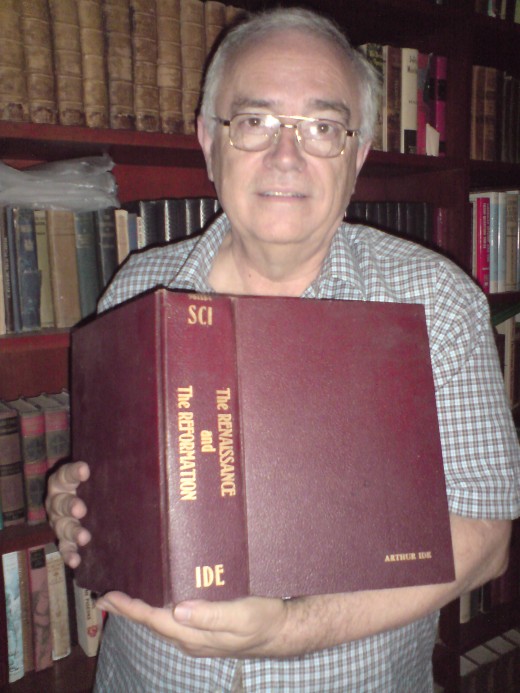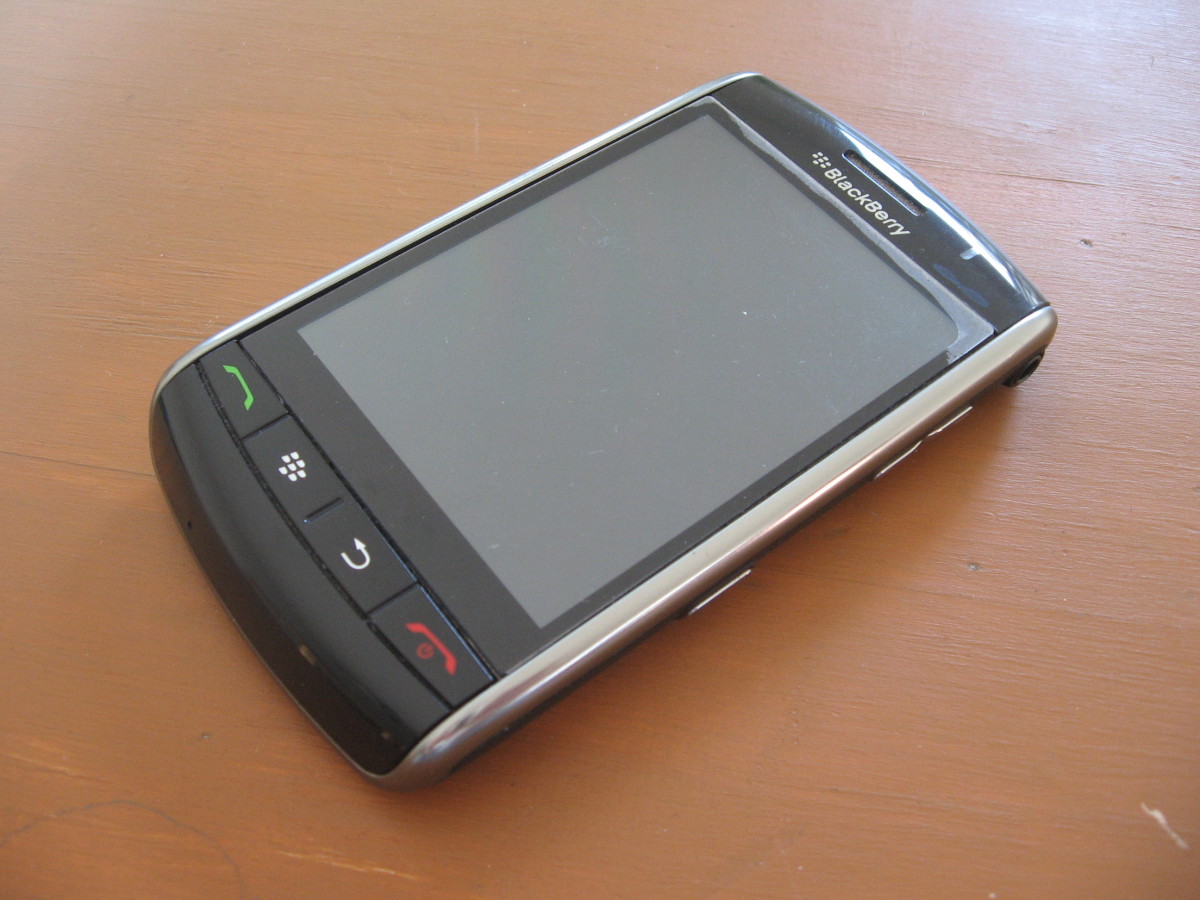The need for more subject-matter experts in teaching and fewer gadgets and PowerPoint presentations
My term paper for Prof. John Eiklor at State College of Iowa

Why education is failing students worldwide: gadgets
Education today has declined dramatically. A new Dark Age of learning is now upon us, with poorly trained teachers who depend on gadgets and tricks to enliven a sleepy classroom of irresponsible students.
In the late Roman Empire through the last days of the proto-Renaissance (400-1500 CE), teachers demanded that students stay quiet, copy what was being read to them from age-worn manuscripts, and never question. Education was stagnant. No new theory or concept was allowed to enter. The earth remained the center of a small universe (Ptolemy's theory that the Vatican demanded allegiance to, damning Copernicus and the unholy Inquisition trying Galileo for heresy, with John Paul II denouncing Stephen Hawking and demanding he not go into the area of "Creation" as if the pontiff was a member of the Louisiana or Tennessee legislatures), and the sun revolved around it.
It still remains that way in the Third World. In Perú, especially with the stranglehold of the Roman Catholic church and its local despot, Juan Luis Cipriani Thorne of Lima, and evangelical extremists (Adventist, Evangelical and Baptist schools), education is a copy of all that was bad before the enlightenment of the 1960s. Evolution was poorly received, and teachers read from Bible how man allegedly was created out of the earth. The moon was too far for mortals to travel to and return home alive and well. Girls were to learn home economics and boys mechanics. The main difference was that there were books available and highly qualified teachers who were considered renegades--so that Charles and Mary Beard had the courage to form the American Association of University Professors to keep quality faculty while churches and parents who felt threatened by the emerging freedoms called for the firing of those who read, researched, wrote and published. It remains that way in South America where education is at best a bad joke.
While education is far better in Chile and in Costa Rica than in other nations, Perú(where I live and for the moment teach) are as backward as ancient Aragon (a kingdom in northeastern Spain). Few schools have libraries, and those that have space set aside for book, shelf only those that pass approval of clergy and parents. To counter ignorance, especially absurd ideas that a female is not a woman until she has sex (Perú has the distinction of having the youngest mother ever: age 5), or that boys cannot learn culinary arts, some teachers and a few administrators attempt to elevate the education level by buying books, building libraries, hiring people who have advanced education and are subject matter experts--as is the case where I teach that has the excellent fortune of having as its Academic Dean Luis Amado Barrera Arréstegui--but he is a rare pearl in a sea of pseudoscholarly sewage. Barrera Arréstegui, unlike his predecessor who had little administrative skills and fewer academic abilities, requires teachers to learn. It was my good fortune to be invited by this sage to teach the teachers of English basic English skills: grammar, punctuation, and writing. As we expected most did not come to class as it was their vacation time or they had luncheon dates and a myriad of other excuses, and most failed the course. Unfortunately, since the university needs profesors they were kept in their positions, further under-minding the educational process.
At San Agustine's in Chiclayo, where I had the misfortune of teaching for a short time (too long by my standards), teachers of English walked around the classroom carrying pictures. Following the bankrupt pedagogy of the International Baccalauréat (IB) the teachers solicited comments about each photograph printed in the IB book. Few teachers had any knowledge of what the photographs represented: including one of Adolf Hitler and Eva Anna Paula Braun(1912-1945). As is the case in most situations where the IB is used, the Director of the program at San Agustine's could not speak a word of English and all meetings were conducted in Spanish and focused on jokes.
At Universidad SeñorSipan's downtown campus the teachers (the correct translation for profesor) use Spanish (Castellaño) most of the time. The students carried English-Spanish wordlists (not dictionaries), iPads and cellphones, and spent the entire class period paging through their dusty tomes.
Tenth cycle students insisted that the teachers teach in Spanish, and declared themselves educated if they could text four words in English, or use an English-face iPad. I failed my entire class. Not one student could not write a sentence with an article, one adjective, a noun, complimentary verb, and a direct object that was coherent.
Every student demanded my e-mail address and my FaceBook page. They were uniformly upset that I have neither, and complained that I was not a part of the real world of technology. I do not teach technology; I teach English. I use a computer at the home of a friend, and have no time nor interest in "chatting on-line".
The demand for gadgets was even stronger among my students at the national university in Lambayeque. They demand to be told "strategies" (spelled out numerically on what to do) without any interest in antecedents that proved with time and research to be a waste of time or showed positive results, and wanted to download my USB and other information so they would not have to take notes, write comments, or dialogue.
When I refused to enumerate what steps a teacher must take to enable a student to learn, noting that learning came with a desire to know, and not with a mastery of learning steps I was shouted down as a person not current for a master program. I was one of a committee of three, a solitary woman with a BA and a certificate stating she had successfully passed a TOEFL examination, and another male showing up only for the last meeting (who told everyone he had a doctorate, but was working in the computer lab at another local university), who created the Master in English program. My colleague with the TOEFL was hailed as "doctor" even though it was a certificate, as it is seen in Perú as being equal to the terminal degree.
By demanding weekly written compositions and refusing to "give out" 20s (the highest score), with the apologiathat students earn their grades, are never given grades, I was denounced to the Director of English (who did not speak a single word of English) as being "incompetent" and "out-of-tune", allegedly hawking my books (the average price of a text in Perú is S/.100 to S/.250 and mine were S/.7 to S/.10 except for the basic grammar book of over 400 pages that was retailing for S/.25) and requiring too much homework, studying, and recitation with dialogue among the group. I was delighted to leave, and hurriedly declared my resignation was effective at that moment. When the Director stated that the university would call on me in the future, my sole response was "buena suerte" and a smile.
It is embarrassing to admit that I taught any student or graduate of any school in the last ten years, for everything now is computerized and students cannot make change from a cash register if it does not have a "read-out", quality academic English is replaced with slang and jargon, e-Books destroy and talking books require no effort and remove any excitement in contemplating the author's word choice, and absurdity of virtual campuses pop up like fungus everywhere. Scholarship has been replaced by plagiarism (especially from Wikipedia and similar sources), citations are not found in many research papers, and creativity is absent along with its handmaiden intellectual inquiry. I have yet to meet a student who teaches English without the use of toys, talking books and other gadgets in any town in Perú who knows and uses quality English. I hear, "Good Ingles I speak," and boasts of propaganda mills and unqualified teachers that they "learn you English in three weeks or less."
Instead of mastering subject matter, students now take courses in "plan lessons I do" and seek out gadgets and other tricks to "spicen up teach ing" with one teacher using her entire two hour course to play a record made in the UK that addresses how to master English composition. The teacher slept until students querried her on the use of adverbal phrases--and she discussed verbs without addressing the issue. Where I teach there are those who think in Spanish then attempt a translation into English and spew out Spanglish--a tragedy that many students catch instantly. This is the daily fare in the philosophy of English class (normally a course at the graduate level) who teaches cosmology without understanding that belongs to the realm of science.
Overused gadgets include PowerPoint presentations. Rather than using them as guideposts to discussions or to illustrate points by picturing a chart, diagram, or photograph, I have had the misfortune of sitting through three baccalauréat defenses at the Roman Catholic USAT in Chiclayo. In each case the candidate used PowerPoint. In each situation the student read every word of the presentation to the audience which consisted of the Director, the lead Profesor, and me. I am multilingual, yet I was treated as if I was a kindergartner who needed to have even the simplest word explained; the monologue was so weak it was boring, the reliance depraved with its heavy dependency on gadgets that the message was buried, and the presentation so infantile it was intellectually offensive.
Where I teach, for the moment, other teachers are aghast and frustrated when overhead equipment (projectors, speakers, and so forth) is not available. I laughed when I first heard this, standing near the Academic Dean. He asked in a most subdued manner, what would happen if there was no electricity. The teachers were left speechless.
Fifty years ago when I first taught English it was with a blackboard, a cherished piece of white chalk, and my own intelligence fed by real education. Back in the 1950-1960 era we read books. At Iowa State University in Cedar Falls, I had the good fortune to have Dr. Josef Fox who required ten books (including the entire works of Plato, the Bible, etc) for his single four hour course. John Eicklor required 20 books for the semester and a term paper that had to have a minimal bibliography of 50 sources. While today many professors do not require any textbooks, others assign readings in Wikipedia or various vicarious versions of subject matter, I survived the courses of the 1950s and 1960s, relished reading in the library, and debated other professors and students. While at Oxford my greatest moment was when one august don demanded that I disprove his thesis, and guided my research. When I passed in my results, he applauded me, ranked me at the top of the class, and introduced me to other faculty. Back in those days it was a mark of honor to question a teacher--not a badge of shame and a potential of failure.
In the past good students had access to international libraries. Today libraries are either "on-line" or marginal as they are in Perú (my own university has less than 500 volumes; my home has over 65,000 volumes which exceeds any university). Students claim they have access to the world's literature on iPad, eBooks, cellphones, and the Gutenberg Project, yet I have manuscripts and books not even listed with the NUC or in any major library that date back before 1400--and they are not available online in any format.
In my days of initial learning before completing my final doctorate, there were no gadgets (except overheads and reel movies and they were used sparingly), no iPads, computers (I typed my first thesis on a non-electric typewriter) and students learned and passed if we proved we had mastered the subject--or went to John Deere's Tractor factory seeking work that was honorable work and also without gadgets. I have never had a serious or superior student who was wed to gadgets and e-learning. I fail students who use "wanna", "gonna", "gotcha," and so forth, and reject the modern concept of starting sentences with conjunctions, prepositions, and adverbs.
The problem with contemporary education (if one can call it that, since 7000 students drop outof high school in the USA every day is that teachers are warehouse workers (they babysit students), try desperately to be friends with the students (I tell my students that I will be friendly but never their friend), or, as one visiting profesora from Argentina at USAT told an audience: she will go out and have beer with her students after class.
What is necessary if education is to survive is that teachers are subject-matter experts. They must know their field of study, so that they can hold the attention of the class, invigorate student desire to pursue the conduct of inquiry independent of gadgets, and actually visit the library. At my university I have yet to see a single student in the library in three years that I have taught; I visit it regularly to research El Comercio and local papers.
Teachers must be tested annually for competency, and if they are found to be unfit for the job, their appointment must be terminated and the alleged educator invited to seek different work or retire. Perú was fortunate in having as Minister of Education in 2007 Antonio Chang who required, following a directive of the Perú Congress, that all Perú teachers be tested for competency. Only 15% showed up for work; and when tested, out of the more than 180,000 teachers who took the examination only 151 passed. Perú education is failing the nation, the students, and the future of the country and the world. Why it is happening is easy to detail: the teachers are seeking "gadgets" and "fun ways" to educate (one of my students demanded that I mime a class; I responded that I am no actor).
The nation of Ecuador boldly entered where other Latin American nations are afraid to tread: getting rid of fourteen universities that were known for bad education (they did not meet even minimum education standards, professors were dependent on gadgets, and students were not reading, studying or learning) and were popularly referred to as "garage universities", and sending 38,000 students out to seek a better learning environment. The government of Peru needs to do the same thing as Perú has too many "garage universities" throughout the nation, as does every nation in the world. It is time to close down the degree mills (especially long-distance learning sites like University of Phoenix, York University in Alabama, and those frauds that advertise on the Internet), test all teachers and administrators (many who have weak MBAs and no advanced study in the degree field they are administering as is common at Perú national universities), build library collections with full-text editions, not Cliff-note versions or poorly translated volumes, and end the toxic dependency on gadgets and quick-fixes to learning problems. Students need to learn subject matter without gadgets before they advance into pedagogy and other areas that most teachers are unfamiliar with and unequipped to handle.








